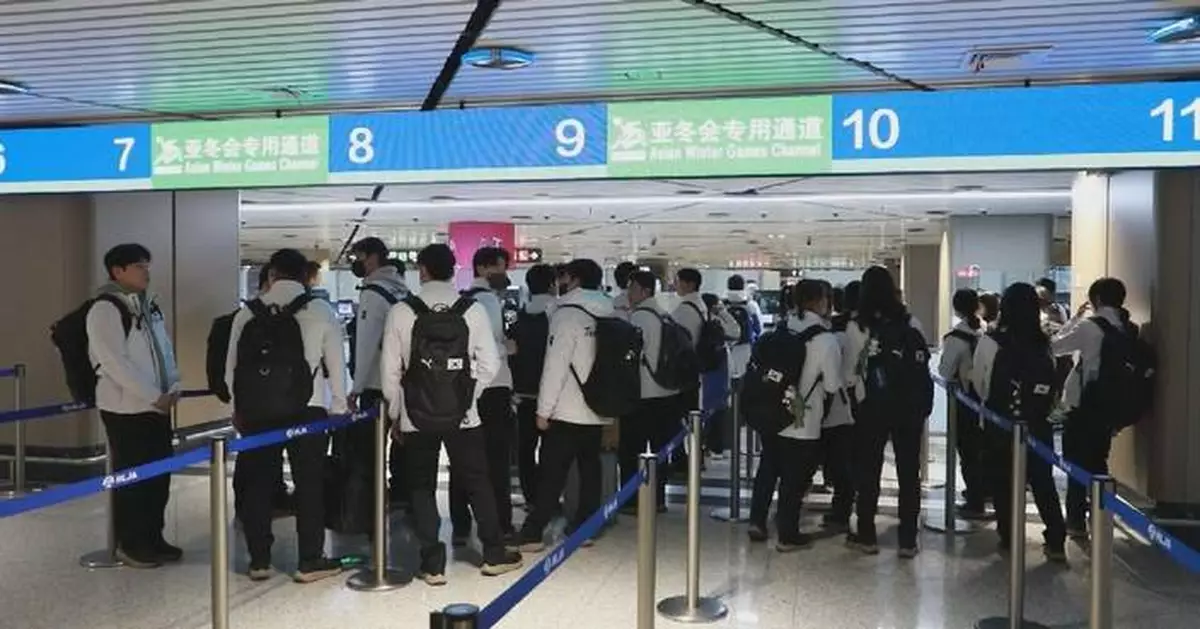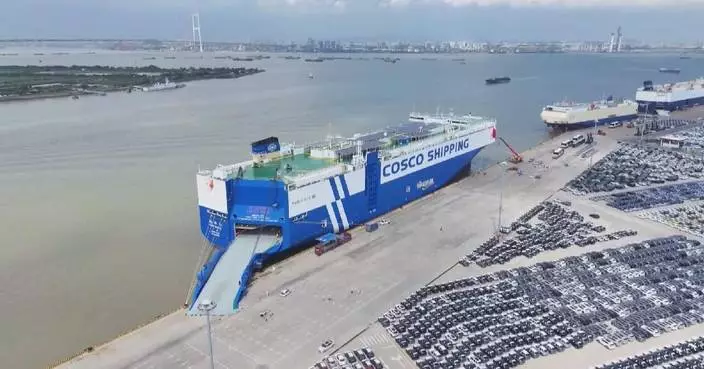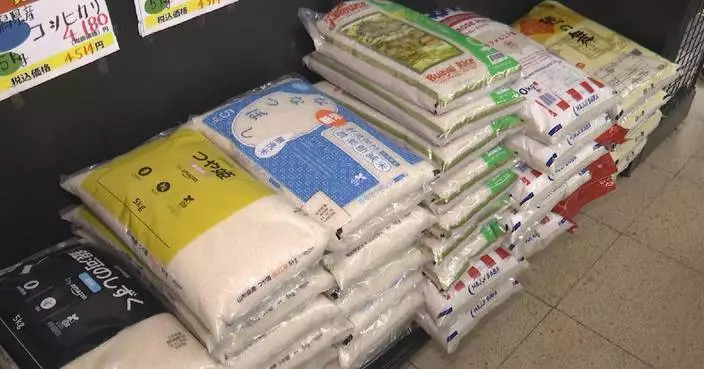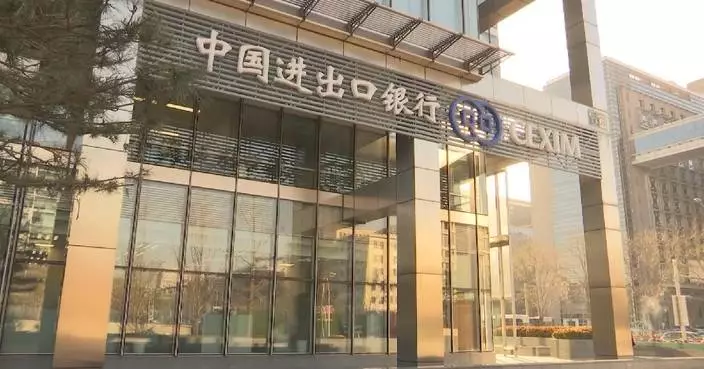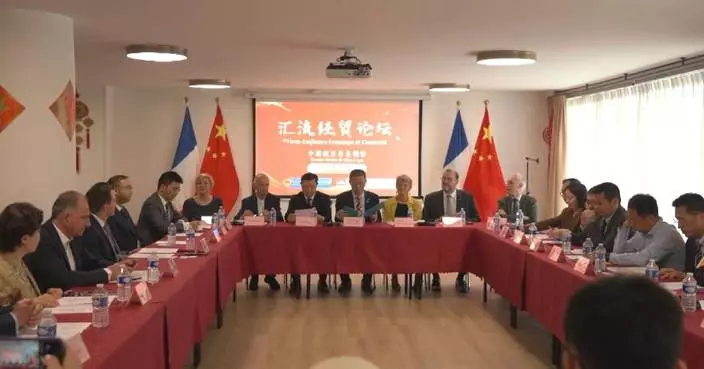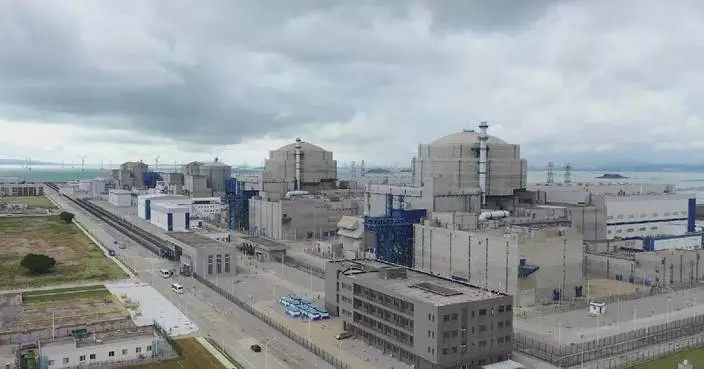With the 9th Asian Winter Games around the corner, the airport in the host city Harbin in northeast China experienced its first daily peak in delegations' arrivals on Saturday as athletes and officials from across Asia began pouring in.
As the official port of entry for the Games, Harbin Taiping International Airport has streamlined customs clearance procedure to ease the surge. At peak hours, 12 manual channels and eight express lanes, including four dedicated to Games participants, were operational to ensure smooth and efficient entry.
More than 100 participants from delegations of South Korea, Japan, Singapore, India, the Philippines and other countries arrived at the airport on Saturday.
To manage the influx, staff deployed advanced inspection equipment, completing luggage scanning and clearance in six seconds on average.
"We've deployed all-in-one smart devices in the inspection area, which integrate the functions of the translator, adjustable verification desk, and biometric system, to ensure fast and efficient clearance for all Games-related personnel," said Zhang Lei, an officer of the Harbin Immigration Inspection Station.
An estimated 5,000 individuals involved in the Games are expected to pass through Harbin airport, with several smaller arrival peaks anticipated in the coming days.
The Games will also offer an opportunity for cultural and sports exchanges across the region while serving as a competition arena.
"I'm really looking forward to this visit and I'm excited because this is the first time my son will be taking part in a big event like this. Yeah, so it's a big thing for him and it's a big thing for us because it has great venue. We're really looking forward to the competition," said Sharish, father of a young Indian athlete.
"I think it's a really great platform for the athletes to engage together. It's also a very good place for cultural exchange I guess," said Koo Jeewoo, a South Korean athlete.
The 9th Asian Winter Games will take place from Feb 7 to 14. The Games will feature six sports, 11 disciplines, and 64 events. This marks the third time that the Games will be hosted in China, following the events in Harbin in 1996 and Changchun, the provincial capital of Jilin, in 2007.
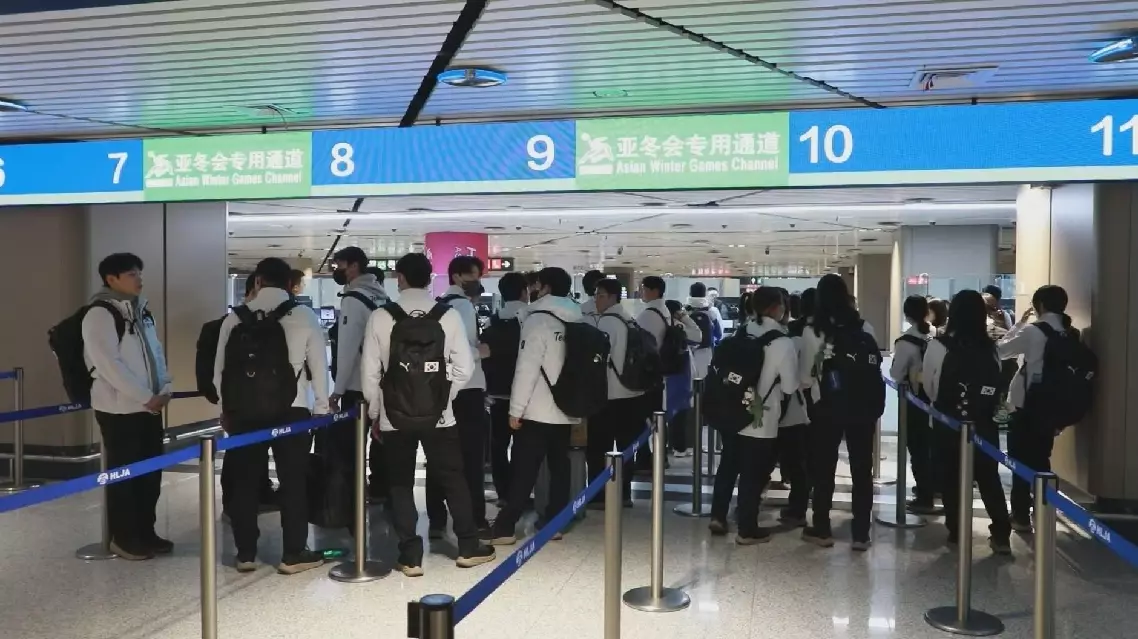
Delegations arrive in Harbin for Asian Winter Games
Shipments from China to the United States have surged since the two countries announced tariff cuts, driving up freight shipping costs for U.S. companies who are rushing to replenish inventories in the 90-day window and prepare for an uncertain future.
Among them is Stonemaier Games, a U.S. tabletop game publisher which has been producing games in China and selling them in the domestic market over the past 13 years.
Jamey Stegmaier, founder and president of the company, told China Central Television that they are trying to ship products out of China as quickly as possible, but the surging demand in freight shipping has made it much harder.
U.S. bookings for container shipments from China to the U.S. had surged by nearly 300 percent as of Wednesday, which has driven up freight shipping prices, according to data from container-tracking software provider Vizion.
"The challenge we are facing now is that a lot of other companies are doing the same thing. So, we are facing shipping delays, port congestions and higher freight shipping costs as a result. I don't have exact numbers on how much the prices will increase. Usually, freight shipping costs are locked in for about a month. So, on June 1, we anticipate seeing those prices go up significantly. And for any shipments that leave China for us in late June, there is the risk that they won't even arrive within the 90-day window. 90 days will fly by," Stegmaier said.
Stegmaier said his company is planning on their winter holiday production run, but it will be much more modest than usual as they don't know how much the tariffs will be at that time.
"The current challenge that we're facing is largely one of uncertainty. I don't even know if the 90-day tariff reprieve will hold. I don't know what will happen after that. So, we are planning for a very uncertain future. And that's the biggest impact, I would say, both on the production side and the inventory that we plan on bringing and holding here in the U.S. at our warehouses," he said.
Questioning the ability of the current U.S. government to build partnerships with other countries, Stegmaier expressed hope that his country will improve its economic ties with other countries and create a more stable business environment.
"So, I'm hopeful for what the future brings in stronger ties between the U.S. and China and any other country. I'm worried the current administration in the U.S. isn't well-equipped to handle that sort of strong, healthy relationship. But I'm hopeful that relationship will improve," he said.
Following a two-day China-U.S. high-level meeting on economic and trade affairs in Geneva, the world's two largest economies announced in a joint statement on Monday a series of measures, tariff modification measures, aimed at easing trade tensions, which took effect on Wednesday.
According to the statement, the United States will place a 90-day pause on 24 percentage points of the additional ad valorem rate of duty on articles of China, while retaining the remaining rate of 10 percent on those articles. It will also remove the additional tariff rates on imports from China announced on April 8 and 9 respectively.
China will suspend 24 percentage points of the additional ad valorem rate of duty on articles of the United States for an initial period of 90 days, while retaining the remaining additional ad valorem rate of 10 percent on those articles. It will remove the modified additional ad valorem rates of duty on those articles imposed by the No. 5 and No. 6 announcements issued by the Customs Tariff Commission of the State Council on April 9 and 11, respectively.

U.S. businesses rush to ship products out of China following tariff cuts



